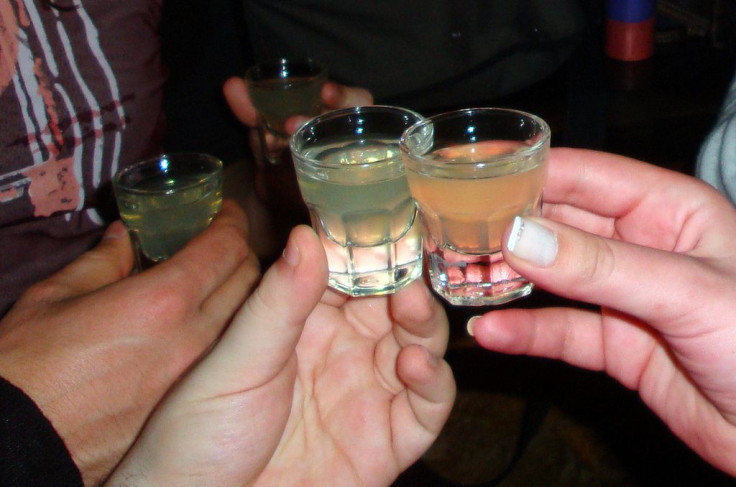Dangers Of Binge Drinking: 70%Of Weekend ER Admissions In England Are Alcohol Related, US Isn’t Any Better

Alcohol can either lead to the best or worst nights of your life, but a new British study has shown that for an increasing number of English youth, it's the latter. The study revealed that up to 70 percent of weekend hospital ER admissions were for alcohol-related incidence, and it's clear England isn’t alone with its binge-drinking epidemic.
For the study now published online in the Emergency Medicine Journal, a team of researchers from Newcastle University in England analyzed the hospital admissions at an emergency admission department in Newcastle upon Tyne. The review consisted of data from the center over four separate weeks in February-March, July, October, and December 2010-2011. In addition, the team tracked episodes of related care over the following 12 months and also carried out breath testing of emergency room attendees during the same four weeks in 2012-13.
Results revealed that of the 5,121 emergency room attendances over the four weeks in 2010-11, 12 percent were linked to alcohol. This number rose to 15 percent in the 2012-13 time period. However, what was most alarming was that when the researchers looked specifically at the number of weekend ER attendances, as many as 70 percent were related to excessive alcohol use.
The large majority of patients were treated for alcohol-related accidents or psychiatric problems. However, alcohol-related falls, head injuries, and assaults were also common at the ER reception.Young men between the ages of 18 to 24 made up the bulk of the inpatients, but past research has shown that women are continuing to catch up with men in their drinking habits. The team estimated that it costs the British government around 1 million GBP (1.49M dollars) to assess and treat patients of alcohol related incidences.
Excessive alcohol consumption is not restricted to Great Britain. The U.S. National Institutes of Health estimates that nearly a quarter of all people in the U.S. aged 18 or older reported that they had engaged in binge drinking in the past month. Binge drinking is defined as a pattern of drinking in which an individual quickly raises their blood alcohol level in a short period of time. According to the Centers for Disease Control and Prevention (CDC), this is about five or more drinks for men or four or more drinks for women over the course of two hours. A 2013 study found that nearly one out of three ER visits in a Baltimore hospital over a one-year period were alcohol related.
The behavior has serious consequences. Binge drinking can lead to drunk driving, unintentional injuries, alcohol poisoning, and risky sexual behavior which ups the chances of contracting an STD and unintended pregnancies. In the long term, habitual binge drinking can increase risk for high blood pressure, stroke, liver disease, and cause neurological damage, the CDC reported.
It's possible that society’s lenient attitude towards drinking is partially to blame. "Currently it is perfectly feasible to purchase a volume of alcohol that represents a safe weekly maximum for less than £10 ($14.89). Alcohol at this price is cheaper than bottled water," Dr. Clifford Mann, emergency care consultant at Taunton and Somerset NHS Foundation Trust, who wrote an editorial on the study, explained in a statement. Mann suggested that raising the price of alcohol may lead to a reduction in alcohol-related health incidences — a practice which has already been invoked in The Republic of Ireland.
Source: Parkinson K, Newbury-Birch D, Phillipson A, et al. Prevalence of alcohol related attendance at an inner city emergency department and its impact: a dual prospective and retrospective cohort study. Emergency Medicine Journal. 2015.
Published by Medicaldaily.com



























